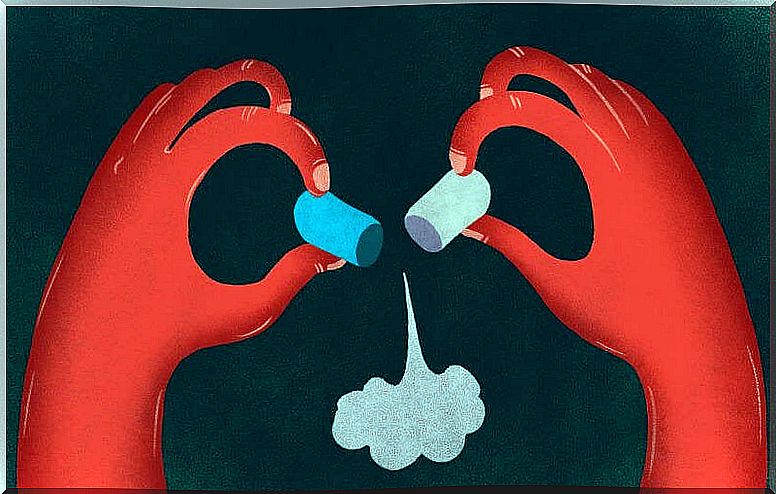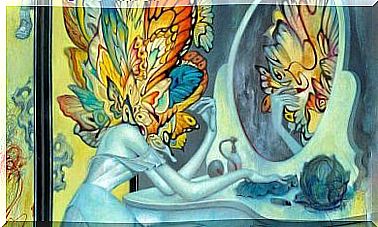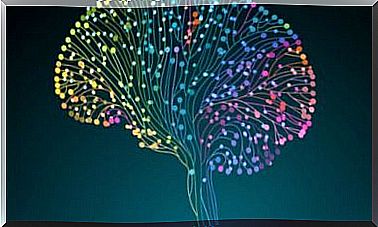Hypochondria: When The Fear Of Being Ill Becomes Reality

Hypochondria or anxiety for health (as the DSM-5 calls it) is one of the most frequent reasons for consultation for psychologists who perform psychotherapy. It refers to people who live with an intense and frequent fear that always revolves around the disease.
The diseases most feared by people suffering from hypochondria are those which involve a progressive and lasting deterioration over time (for example, cancer, HIV, fibromyalgia), even if we also see the case of people who are afraid of hypochondria. ” have heart or respiratory disease (which involves a more rapid and acute course).
In other words, while the most characteristic thing of hypochondria is the fear of diseases that gradually deteriorate our body, the fear of faster diseases like heart attack or choking is typical of panic disorders. In all cases, regardless of the type of illness that the person with hypochondria fears, it is the actions that seek control over their body, their sensations and how to deal with the fear that end up ‘making them sick’ (psychologically. speaking).

Even though the central components of hypochondria are the fear of the disease and the behaviors to have a diagnosis (medical tests, search for information, etc.), there are more psychological factors that influence the development of this disease, on the intensity and duration of the latter.
We will therefore explain to you, through this article, how the intense fear of people suffering from hypochondria eventually becomes real, due to a search for control over their own body, an intolerance of uncertainty and ‘inadequate fear management.
How does the fear of being ill attract illness?
In order for a person who is afraid of getting sick to eventually develop hypochondria, several factors are necessary. Among the most characteristic psychological factors that ultimately turn this fear of being ill into a reality are unreal expectations and preconceived ideas about how our bodies should function.
The role of unreal expectations, self-demand and the need for control in the development of hypochondria
When a person has unreal and unfounded expectations of how they should feel each day, any normal physical sensation like a twitch, cramp, or unspecific pain becomes red flags that indicate something. do not go. This is partly real: if I have a headache all the time and I have a contracture in the neck, it is certain that something is wrong with my body, pain and discomfort are signals. In contrast, people with an intense fear of the disease interpret these signals as obvious indicators of an underlying disease.
The fear of illness becomes greater if I have a mental pattern that tells me that “when I feel something in my body, it means that something bad is happening to me and that I am sick”. Having a preconceived idea of how my body should function therefore facilitates the development of hypochondria. This type of reasoning is quite common in people who have a low tolerance for bothersome physical sensations. These are people who believe their bodies should always be the same (no new spots, no moles), pain-free (no twitching or cramps) and discomfort (nothing “weird” or “ new”).

Also, although physical discomforts are normal and part of being alive (our body is a constantly changing organism), if we pay attention to them, we end up amplifying them. This is explained through the “door theory”, which has scientifically demonstrated that by paying attention to a sensation in our body, we only amplify it, make it more intense and lasting over time. Distraction techniques are therefore essential for a good psychological treatment of hypochondria.
In addition, self-demand is a key factor in the development of hypochondria because a high level of self-demand towards one’s body and facing the disappearance of the discomfort must take place. In other words, it is not enough to be afraid of the disease and not to endure normal physical discomfort, it is also necessary that a high degree of self-demand and the search for control arise for the hypochondria takes place. The person must think that the discomfort or the awkward feeling must pass and set an arbitrary date for it to be.
By avoiding being physically ill, we end up being psychologically ill
Intolerance of bothersome but normal physical sensations, in addition to asking the body to stop having control over what is happening in the body causes people to “get sick” psychologically. Since you can’t pay attention to two things at the same time, if someone is watching what hurts them more or what causes them less pain, where they hurt, how much suffers, this person will waste a large part of his time trying to control the uncontrollable: the normal functioning of the organism.
Once the physical sensations have amplified through the person’s attention, the person gets scared and starts researching the Internet or making appointments with doctors to find out why they are feeling the way they are. feels or why it hurts somewhere. The process of finding information on the internet is very dangerous because it provides the person with a huge amount of information that they can use to continue paying attention to the discomforts in their body and commenting on what is known as prophecy. self-fulfilling.
In addition, going to the doctor and being diagnosed with non-disease (because if it is hypochondria, there is no disease) only temporarily calms the subject and makes him a slave to public opinion. from a professional. In addition, it places him in the position of the patient because when he performs tests and scans, the hypochondriac considers himself to be sick when he is not.
How can we properly deal with the fear of illness?
To seek the safety of the absence of disease through different sources, without being convinced by what professionals tell us and by continuing to believe “I know I have something even if I am told otherwise” is not the proper way. Our mind is very temperamental and very often it “decides” to take the wrong path and makes us feel very sure of it. In the case of hypochondria, the person should know that through information seeking strategies and medical tests, they are only being carried away by fear. She has to admit that she is wrong and that while she thinks something is happening to her, it is not.

The fear of getting sick is normal and adaptive, we need a certain fear to have healthy and protective behaviors. But looking for information that tells me I’m not sick is an incorrect way to deal with this fear. As a first step, we must drop the search for control of physical sensations and abandon medical tests to no longer find ourselves in the role of the patient.
Secondly, we must understand that the problem is not fear in itself but intolerance in the face of this fear, which becomes greater and greater each time we do something so as not to feel it or to calm her down. It is very important to know that the problem is not the fear but how to deal with this fear. This is what develops hypochondria.
So, taking all this into account, a correct way to deal with the fear of getting sick is to study it, to understand why it occurs, what it brings to us, what we can do with it and, most importantly. , to accept it. You can work with a psychologist to learn how to deal with any fear, even the fear of getting sick. Because if you don’t manage it properly, the fear of illness will eventually drift into psychological illness.










